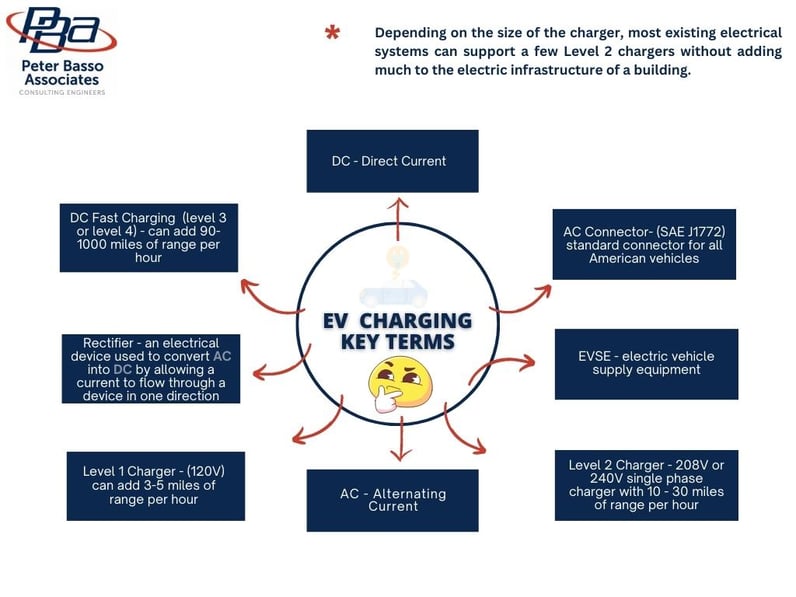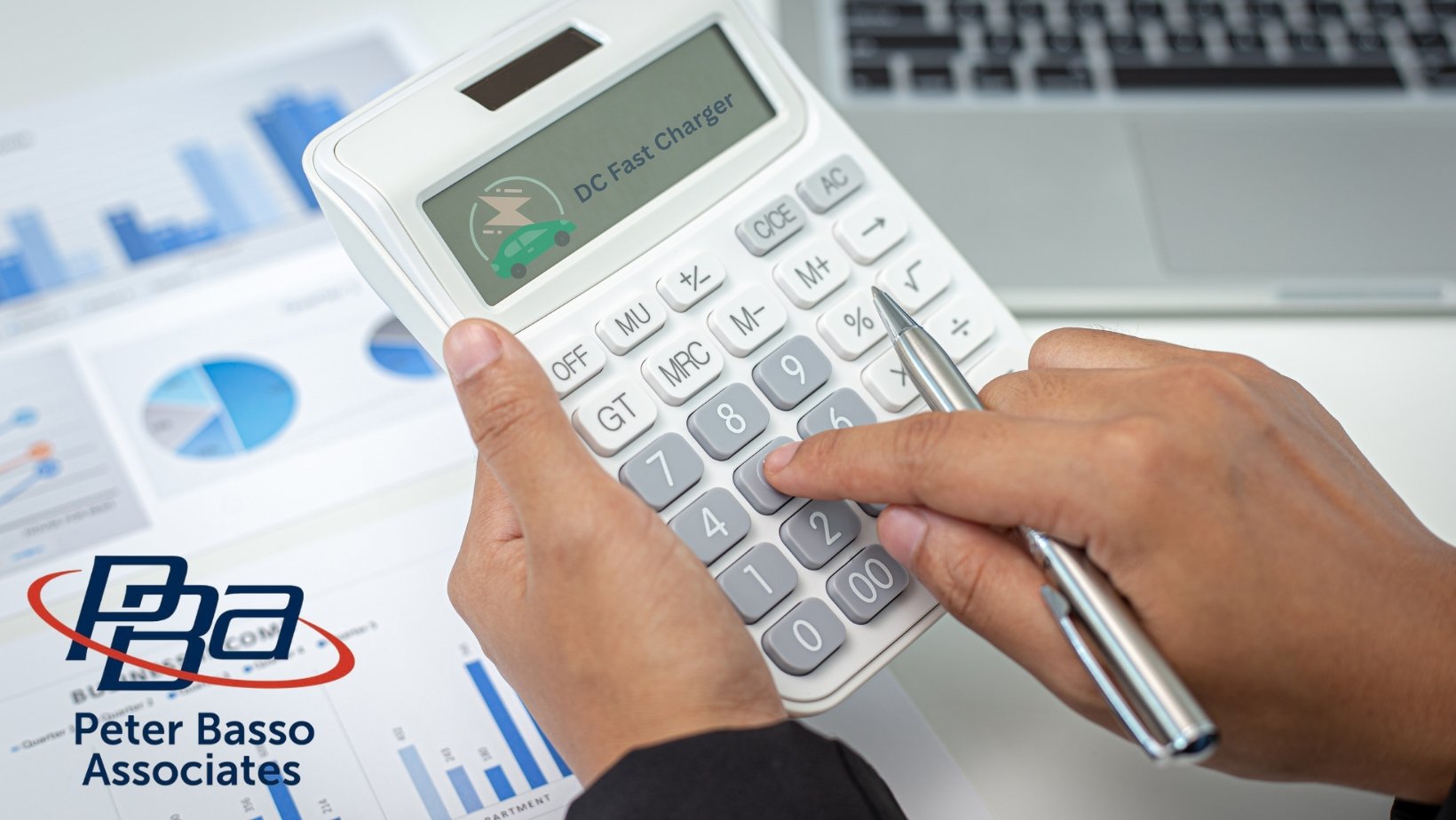.webp)
The most commonly asked question we receive from prospective EV adopters is, "How fast can I charge my EV?” The answer is simple, “It depends!” As far as range goes, obviously this is dictated by which EV is purchased. However, the answer for how long it takes to charge an EV is more nuanced than most understand.
Here is a quick refresher of key terminology as we dive into a deeper discussion regarding EV fast charging.

What are your specific EV charging goals?
If the goal is charging an EV as fast as possible, the clear solution is a DC Fast Charging option that can add 90-1000 miles of range per hour! However, there are some caveats to this. DC Chargers will only charge at this rate until the battery is at about 80% charged (to protect battery life). The remaining 20% takes much longer to charge. In addition, in extreme temperature environments, the EV will not charge as fast (again to protect battery life). And if that isn’t confusing enough, charging rates are determined by the vehicle, not the charger.
Some vehicles limit fast charging speeds. For example, if an EV from Manufacturer A plugs into a 360kW DC Fast Charger but only has a maximum charge rate of 150kW, then it will only charge up to 150kW. This means, it won’t charge at the 1000 miles/per hour that would be expected.
Pull out your calculators
Fast-charging electric cars also have a high cost attached to those desired speeds. The cost of the charger alone can range from tens of thousands to hundreds of thousands of dollars. This doesn’t include any infrastructure required to power it (wiring, panels, concrete pads, etc.) or electric vehicle service equipment. The installation of a single, small DC Fast Charger could result in electrical service upgrades to the building due to a lack of electrical capacity.

For smaller buildings, the service might need to be upgraded to include the 480 volts required. Based on our experience, typically smaller buildings are outfitted below the volt service requirements at around 208v or 240v service capacity. With equipment and labor, the cost to install a single DC Fast Charge station typically exceeds $100,000.
Should your current plans not include the installation of DC Fast Chargers due to cost, future consideration is important. The best opportunity to size new or existing electrical systems is during new construction or a major renovation. This will allow your facility's electrical service to easily accommodate DC Fast Chargers when desired, reducing the initial installation cost considerably.
Often when faced with the actual costs and unanticipated upgrades that are required, building owners start to re-evaluate their initial EV Charging goals. If you are considering DC Fast Charging, it is important to consult with an experienced electrical engineer who can evaluate your building’s infrastructure and guide you through selecting the right charger solution that meets your specific needs and budget.
Partner with PBA for your EV charging needs
Peter Basso Associates has experience on multiple projects with design of Level 2 and DCFC EVSE as part of new construction and renovation work. We will walk you through options that fit your needs. In addition to our experience with EVSE equipment, we are power system specialists and can help you understand the full impact of implementing a EVSE installation.
These Stories on Electrical Engineering